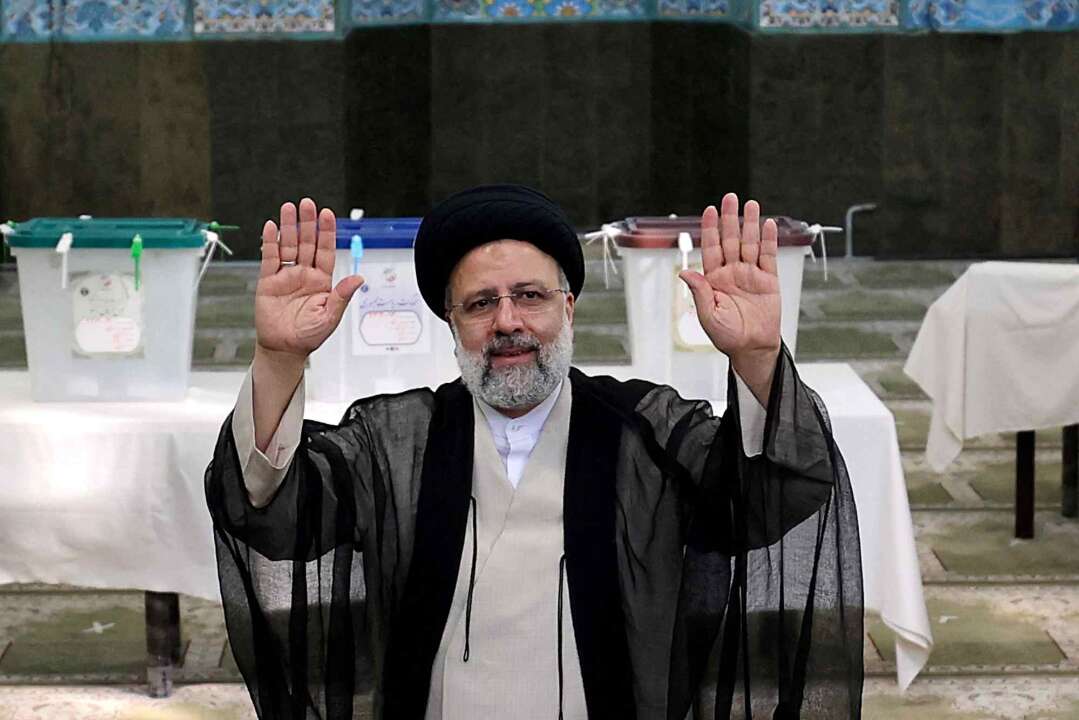New priorities?
Ebrahim Raisi's policy stances will be worth watching as he assumes presidential office in mid-August

Amid the attempts by the world powers to revive the landmark nuclear deal with Iran, one can merely speculate the policies the hardline conservative cleric, president-elect Ebrahim Raisi will formulate towards the West.
His priorities and the way he faces the potential windfalls from the nuclear deal will go a long way in charting out the future of Iran, West Asia as well as the West.
Setting aside the confrontationist approach and adopting a policy of give and take could help him revive the nuclear deal which could bring the country back to global oil markets and help resurrect its shattered economy.
The 60-year-old has support from Iran's highest religious and military establishments, effectively meaning that all of Iran's state institutions and levers of power would be controlled by hardliners.
This provides him with an opportunity to revive the country's economy, improve diplomatic relations and strengthen geopolitical outreach in West Asia and beyond.
Raisi — elected amidst the lowest voter turnout in a presidential election in the Islamic Republic's history — is said to be a favourite for eventually succeeding the supreme leader Ayatollah Ali Khamenei.
What appeared to be a nod to continuity, Raisi said that he would listen to and work with the administration of the outgoing President Hassan Rouhani until he takes office in mid-August.
"We will certainly tap the experience of the current government…I will sit down with the ministers and use their experiences and views," he said in a state television address, standing next to Rouhani as initial results came in.
He had previously said he would preserve the nuclear deal that Rouhani, a moderate, had helped seal. He also indicated that he doesn't want to make it Iran's central foreign policy concern.
Foreign Minister Javad Zarif said "the foreign policy of Iran, which is based on consensus, will continue" and that there was a "good possibility" of an agreement on the revival of the deal before Rouhani's term ends.
Observers are optimistic about the deal. They say that the efforts to restart the 2015 nuclear accord, from which Donald Trump withdrew the US in 2018, is not expected to derail as that policy is decided by Iran's supreme leader.
The US exit from the deal resulted in Iran's hardliners, who were always critical of the accord, win control of Parliament last year. Most moderate and reformist candidates were disqualified from running to the presidential election earlier this month.
It also sent tensions soaring in the Persian Gulf, fuelling regional conflicts and prompting Tehran to abandon constraints on its nuclear programme mentioned in the pact to enrich uranium close to the level needed for a bomb.
The election was held in the backdrop of the country's battered economy because of Trump's withdrawal from the Joint Comprehensive Plan of Action (JCPOA), Covid Pandemic and the inability of Rouhani's reformist government to deliver on its promises.
In the past, although elections were tightly controlled and the Supreme Leader retained ultimate command, these were genuinely competitive. However, this time leading reformists and centrists were disallowed as 600 candidates were whittled down with just four remaining in the fray.
Raisi secured 17.9 million votes while the only moderate candidate Abdolnaser Hemmati came third with 2.4 million ballots. Overall turnout was 48.8 per cent, the lowest in the 42 years that Iran has held presidential elections.
Many analysts see this election as a fundamental shift in the balance of power away from elected representatives and towards the clerics. Reformists will also be facing a tough time to regroup and find a ground to establish themselves.
Raisi was sanctioned in 2019 by the Trump administration over his alleged grim human rights record. It cited his role as the Justice head in summary and extrajudicial executions of thousands of political prisoners in 1988; and in a deadly crackdown on protestors in 2019.
Raisi will have to prioritise economic investment and reform; and give clear signal that his administration will use the economic benefits from a renewed nuclear deal, if it comes through, to improve the livelihood of ordinary Iranians suffering from decades of tough sanctions and isolation.
This would also mean a shift in foreign policy and favouring healthier trade and cooperation with neighbours, particularly Saudi Arabia, Bahrain and the UAE.
Iran also has greater leverage in Iraq, Syria, Lebanon and Yemen, and it could help in restoring security, peace and stability to these struggling countries, earning much goodwill.
It could also play a significant role in regional security as the US downsizes its military commitments in the region. Of course, no one is expecting a change in Iran's policy towards its arch-rival Israel.
The change of guard in Iran is unlikely to have much impact on its ties with India, although the hardliner president may occasionally niggle New Delhi by advocating the stand of the Organisation of Islamic Conference (OIC) on Kashmir.
From the economic perspective, Iran is the second-largest supplier of crude oil to India. India is one of the largest foreign investors in Iran's oil and gas industry.
India's state-owned company ONGC was involved in Iran's Farzad-B Gas Field at the discovery stage. After the detection of gas, a protracted negotiation between the two countries failed to result in India getting the rights to its development. Iran subsequently awarded a contract for developing the giant gas field to a local company.
Iran's geographical position is significant to India's geopolitical outreach, especially to Central Asia, a rich reservoir of natural resources. Similarly, it is vital for India's access to Afghanistan where New Delhi has immense strategic and security interests.
In recent years some warmth in Indo-Iran ties has been lost because of Tehran's drift towards China.
The writer is a former Editor of PTI and served as the West Asia correspondent for the same. Views expressed are personal



